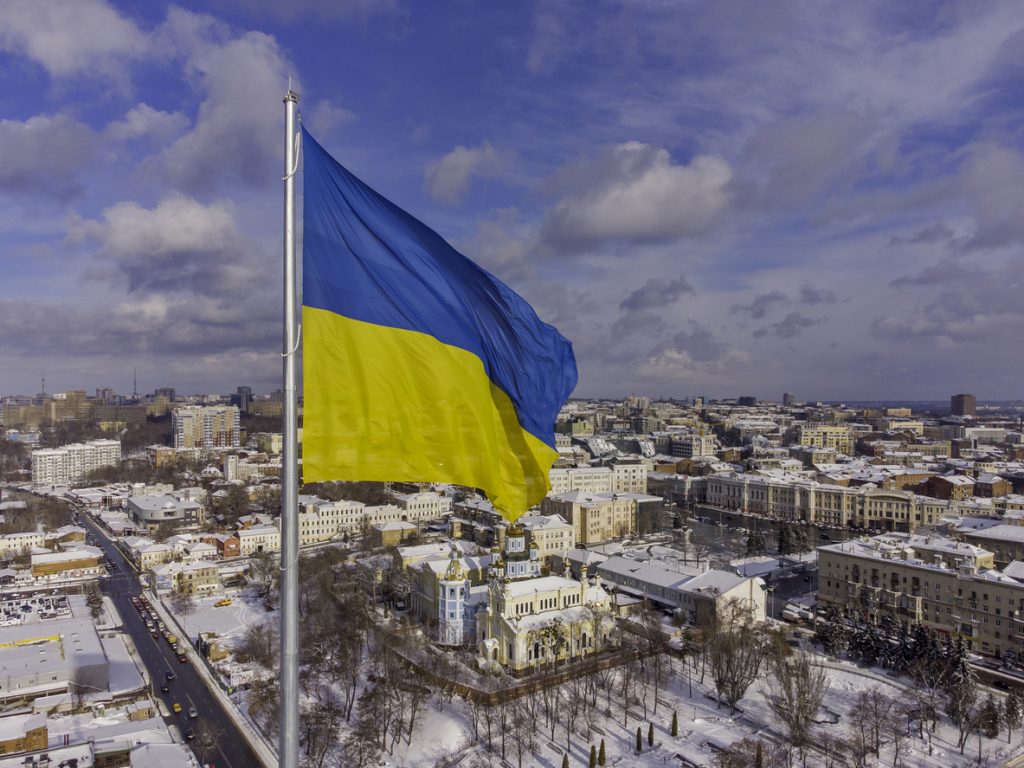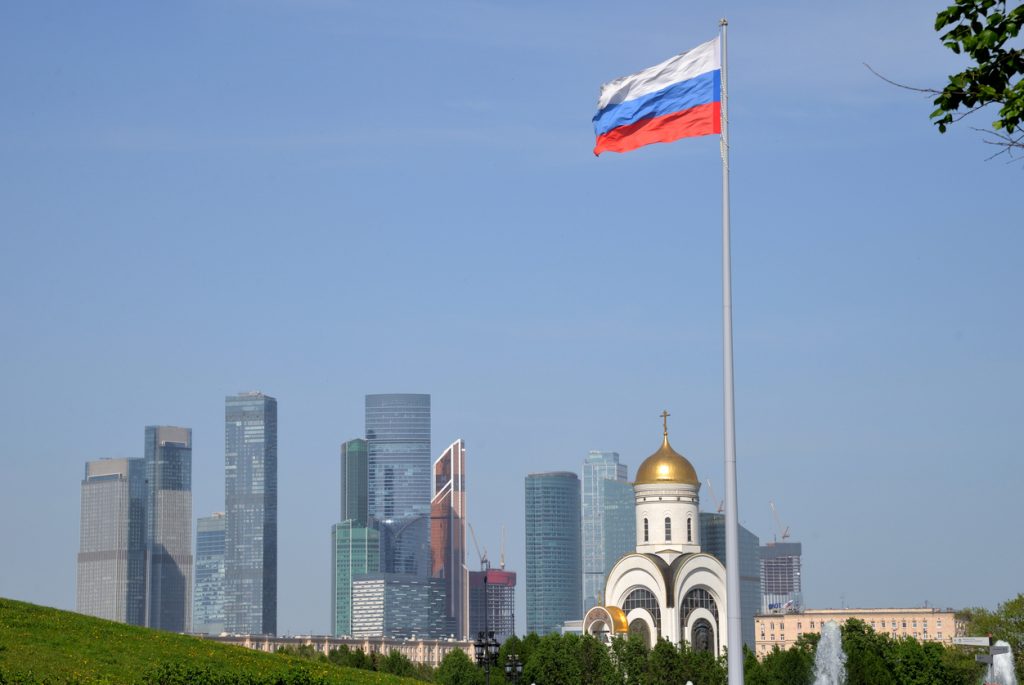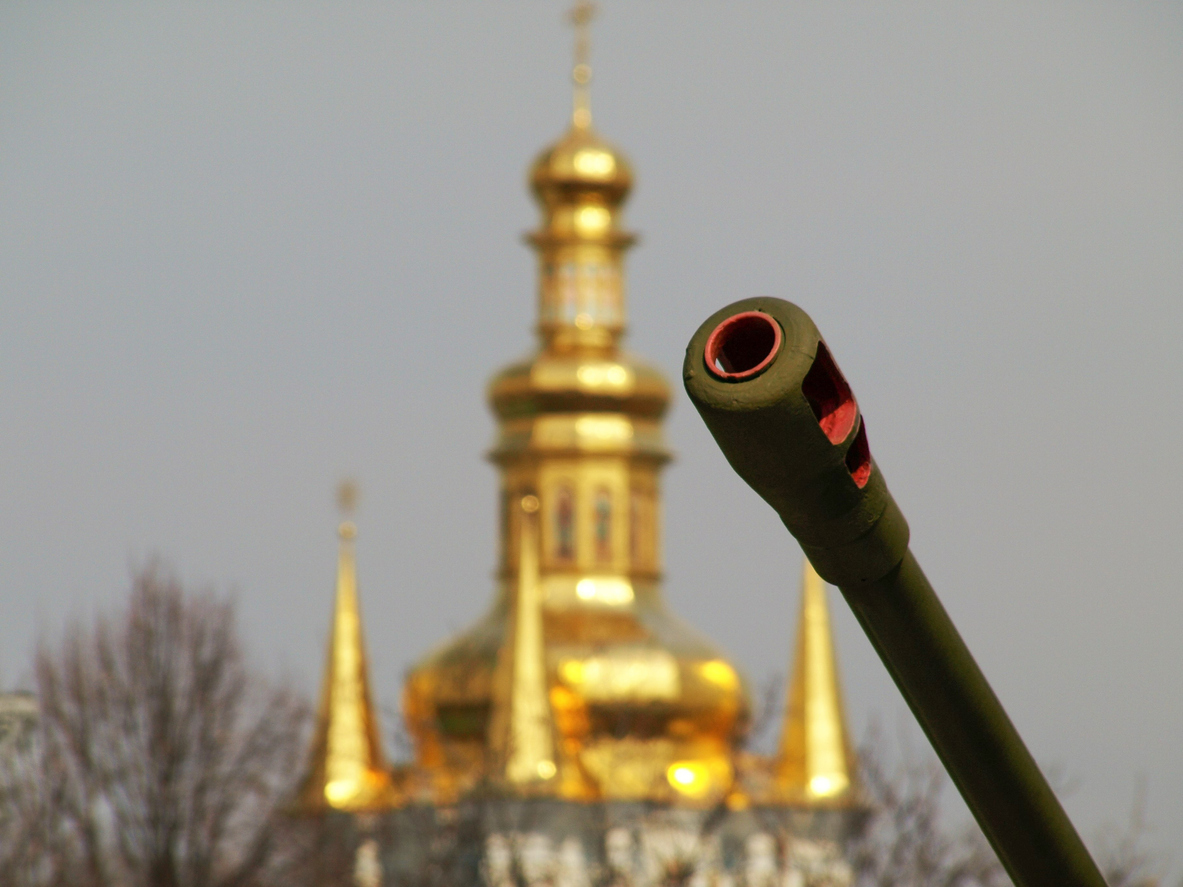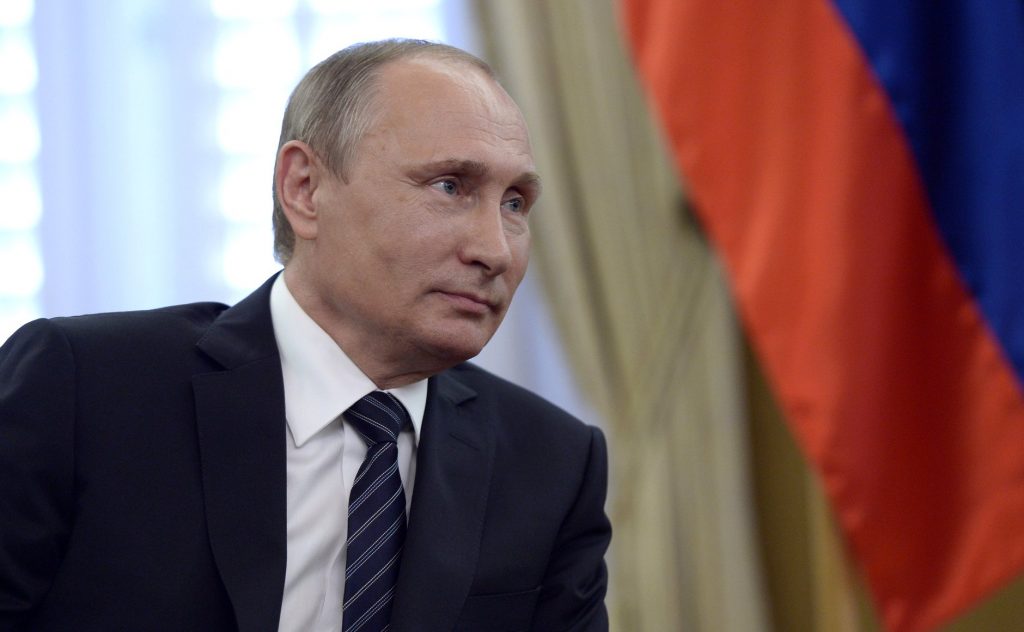Understand Your Rights. Solve Your Legal Problems


US President-elect Donald Trump announced on Monday his intention to meet with Russian President Vladimir Putin "very quickly" following his inauguration next week. He did not specify a date or location for the meeting, which would mark the first encounter between the leaders since the onset of Russia's war with Ukraine in February 2022.
In response to a question regarding his approach to resolving the conflict, Trump stated to Newsmax: "There is only one strategy, and it ultimately depends on Putin. I cannot imagine he is particularly pleased with the current situation, as it has not unfolded favorably for him either. "I am aware that he wishes to meet, and I plan to do so promptly. I would have preferred to arrange it sooner, but... one must first assume office. For certain matters, physical presence is necessary."
RELATED: The Hidden Impact of SWIFT Sanctions on Global Banking
The war in Ukraine, now nearly two years into its full-scale invasion by Russia, (24th February, 2022) is increasingly being referred to as a 'devastating conflict' that could fundamentally threaten the very survival of the Russian state. What began as a military operation aimed at swiftly securing Ukraine and toppling its government has now evolved into a protracted, costly, and bloody war, with dire consequences not only for Ukraine but for Russia as well. For Russian President Vladimir Putin, the situation is becoming more dire by the day, as the consequences of his decisions take a significant toll on the country's economy, military, political stability, and global standing. Experts are warning that Russia is sitting on a ticking time bomb—one that could have far-reaching and potentially catastrophic consequences if the situation is not brought under control.
The Ukraine war has proved to be much more challenging for Russia than Putin and his military advisers initially expected. Despite initial hopes that Ukraine would be quickly overrun and its government toppled, the Russian military has faced fierce resistance from Ukrainian forces, backed by the international community and NATO support. Western countries, including the United States and European Union, have provided Ukraine with advanced weaponry, intelligence, and training, significantly strengthening the country's defense.

As the war has dragged on, it has become clear that Russia is not only facing a determined opponent but is also struggling with its own internal challenges. The Russian military has suffered devastating losses on the battlefield, with estimates suggesting that tens of thousands of Russian soldiers have been killed, wounded, or taken prisoner. The conflict has taken a severe toll on Russia's military hardware as well, with advanced tanks, aircraft, and artillery systems being destroyed or disabled in large numbers.
Related: Trump Announces Willingness to Meet Putin for Ukraine Peace Talks
The economic cost of the war has been equally staggering. Sanctions imposed by the West have crippled Russia's economy, leading to a significant decline in living standards for ordinary Russians. Foreign investment has plummeted, and key industries such as technology, energy, and manufacturing have been severely impacted. Inflation has soared, and the ruble has lost significant value, further exacerbating the economic hardship faced by the Russian population. The country is now grappling with the long-term consequences of international isolation, as many of its largest trade partners have turned away in response to its aggression.
While it is difficult to provide a precise figure for the total economic cost of the war, estimates vary significantly depending on the factors considered. According to some reports, the cost of the war to the Russian economy exceeds $200 billion, according to the Pentagon, taking into account military spending, losses in infrastructure, sanctions, and a decline in global trade. In addition to the direct financial burden, Russia is also facing long-term economic repercussions, including lower foreign direct investment, an exodus of talented workers, and damage to its energy sector.
Sanctions imposed by Western powers have also played a critical role in the economic cost. In 2022 alone, Russian exports to Europe dropped by more than 40%, with the energy sector, in particular, being hit hard. The European Union's efforts to reduce its reliance on Russian oil and gas, paired with a global boycott of Russian products, have left Russia isolated from its key markets. These sanctions, combined with the internal economic fallout, have plunged Russia into an ongoing economic crisis that shows no signs of abating.

The Russian government has attempted to mitigate these losses by turning to countries like China and India to maintain trade relations, but the long-term sustainability of these partnerships remains uncertain. Furthermore, the depletion of Russia's military resources and a rapidly declining economy point to a future that could be economically bleak for the country if the war continues.
While Putin remains firmly in power for now, his leadership is facing mounting pressure on multiple fronts. Domestically, the war in Ukraine has sparked growing dissent among the Russian population. As casualties continue to rise, many Russians are becoming disillusioned with the government's handling of the war, and anti-war protests have erupted in cities across the country. Although the Russian government has worked hard to suppress public dissent through heavy censorship, arrests, and propaganda, it is increasingly becoming clear that support for the war is eroding.
The Russian political elite, too, are growing restless. As the war drags on, it is becoming harder for Putin to maintain his grip on power within the upper echelons of the Russian government. The war has led to growing divisions among the country's leadership, with some members of the political and military establishment reportedly questioning Putin's judgment and ability to manage the conflict. There have even been whispers of potential challengers to Putin's rule, although no concrete opposition has emerged so far. Nevertheless, the fact that such conversations are taking place behind closed doors speaks to the level of concern that the war in Ukraine is generating within Russia's political circles.

One of the most significant challenges for Putin is managing the expectations of the Russian people. When the invasion began in February 2022, Putin promised a swift and decisive victory, framing the war as a necessary action to protect Russian-speaking populations in Ukraine and to curb the influence of NATO. However, as the war has dragged on, and with no clear path to victory in sight, many Russians are beginning to question whether Putin's promises were ever realistic. For a leader whose power has been built on projecting strength and invulnerability, this growing sense of doubt poses a significant threat to his authority.
Since Russia's invasion of Ukraine in 2022, many prominent Russians have fled the country, citing the increasing political repression, opposition to the war, and fears of persecution. The exodus of these figures, including business tycoons, political figures, and activists, highlights how the war and the Russian government's repressive actions have caused deep divisions and strained relationships, even within the elite circles of Russian society.
Mikhail Khodorkovsky, once Russia’s richest man and head of the Yukos oil company, is one of the most notable figures to leave Russia. After spending years in prison under Vladimir Putin’s administration on charges many considered politically motivated, Khodorkovsky has become one of the most vocal critics of the regime. He relocated to London after his release in 2013 and has since been an outspoken critic of Putin’s government. His opposition to the war in Ukraine has further distanced him from Russia, and he has called on the Russian people to resist Putin’s militaristic ambitions.
Russian oligarchs have been among the most prominent figures to leave, partly due to the devastating impact of international sanctions imposed by the West in response to Russia’s actions in Ukraine. Oleg Deripaska, a powerful businessman with close ties to Putin, has faced financial and personal fallout as a result of the war. Deripaska, the founder of the aluminum giant Rusal, has been a subject of sanctions that restricted his ability to operate internationally. This, alongside growing international pressure on Russia, led to a significant retreat from the public eye, and it’s speculated that Deripaska may have also quietly sought refuge abroad.
Roman Abramovich, the former owner of Chelsea Football Club, is another well-known figure who sought to distance himself from Putin’s government after the invasion. Abramovich, who had been one of Putin’s closest allies for years, faced personal and professional consequences after his assets were frozen, and he was sanctioned by the European Union and the United States. In 2022, Abramovich relocated to Israel after the UK government imposed sanctions on him, signaling a decisive break with the Kremlin. While his exact reasons for leaving remain unclear, his departure from Russia underscores the impact the war has had on the elite class in Russia.
Sergey Tokarev, a prominent tech entrepreneur and investor, is another individual who sought to leave Russia due to the war. Tokarev, known for his work in the software and telecommunications sectors, had been a successful businessman in Russia, but like many others in his field, his career became increasingly uncertain as the war intensified. With Russian companies facing sanctions and operating under increasing political pressure, Tokarev chose to relocate to another country to maintain his business interests and personal safety.
Dmitry Medvedev, a former president and prime minister of Russia, has distanced himself from the conflict despite his longstanding loyalty to Putin. As a key ally of Putin for years, Medvedev’s public role has been marked by fluctuating support for the Russian leader. However, Medvedev has made numerous controversial statements defending Russia's actions in Ukraine, leading to speculation about whether he would ever leave the country. While he has not yet fled, it’s clear that his future in Russia could be compromised by the ongoing war and its potential fallout on the political landscape.
The impact of these departures on Russia’s elite class is significant. They are a direct reflection of the war’s toll on the upper echelons of Russian society, where economic pressures, international sanctions, and the increasingly authoritarian nature of Putin’s government have caused many individuals to reconsider their allegiance to the Kremlin. The war has polarized Russian society, with figures who were once part of Putin’s inner circle now questioning their roles or seeking safety abroad.
In many ways, these high-profile departures are symbolic of a broader trend among the Russian elite, who are increasingly finding themselves caught between loyalty to a controversial leader and the desire to preserve their wealth, influence, and freedom. The exodus of wealthy businessmen, political figures, and activists underscores a deepening crisis in Russia, where internal opposition to the war is growing stronger even as the government seeks to suppress dissent.
As the war in Ukraine continues to unfold, more high-ranking individuals may follow suit, seeking refuge abroad to avoid the political and economic consequences of their country’s military aggression. The impact of these departures, combined with the growing international isolation of Russia, will continue to play a pivotal role in shaping the future of the Russian government and its relationship with the rest of the world. The ongoing mass exodus of individuals who once enjoyed the Kremlin’s protection further signals that, for some, the war is no longer worth the price of loyalty to Putin’s regime.
On the global stage, the consequences of Russia's invasion of Ukraine have been equally dire. Russia's relations with the West have plummeted to their lowest point since the Cold War, and the country is now largely isolated from the international community. The United States, the European Union, and other Western nations have placed severe sanctions on Russia, targeting key sectors of its economy, including energy, finance, and defense. These sanctions, while initially designed to pressure Putin into halting the war, have now become a long-term strategy to weaken Russia's economic base and reduce its global influence.
The war has also had a profound impact on Russia's relations with other countries, particularly in Europe. Once seen as a dominant power in Eastern Europe, Russia is now struggling to maintain its influence in the region. Countries that were once within Russia's sphere of influence, such as Finland, Sweden, and Ukraine, have sought to distance themselves from Moscow and strengthen their ties with NATO. This shift has dealt a significant blow to Russia's geopolitical ambitions and has isolated the country further from the international community.
Even Russia's relationship with China, which has long been viewed as an important ally, is being tested. While China has refrained from directly condemning Russia's actions in Ukraine, it has expressed concern over the human and economic costs of the conflict. Additionally, China's growing economic influence in Asia and beyond has made it increasingly difficult for Russia to maintain its standing as a global power. While the two countries may share some strategic interests, it is clear that Russia's reliance on China is unlikely to be a sustainable solution to its current crisis.
As the war in Ukraine continues to devastate Russia, it is becoming clear that Putin is sitting on a ticking time bomb. The consequences of the war are being felt on multiple fronts, from the battlefield to the economy, from public opinion to global relations. The longer the conflict drags on, the more the situation deteriorates for Russia, and the more Putin's grip on power weakens.
The war is increasingly being seen as a matter of survival for the Russian state. If the conflict continues without a resolution, there is a real risk that Russia's internal stability will unravel, leading to a potential political crisis. For Putin, this represents the greatest threat to his rule, as any loss of control over the political and military establishment could spark a wider challenge to his leadership.
Furthermore, Russia's continued isolation from the global economy could have long-lasting effects on its ability to compete on the world stage. The country faces a future of economic stagnation, diminished influence, and growing internal unrest if the war in Ukraine is not resolved. The longer Putin waits to find a solution to the conflict, the more entrenched these problems will become, and the more likely it is that the war will lead to a crisis of unimaginable proportions.
In conclusion, Putin's war in Ukraine is not only devastating for the Ukrainian people but also for Russia's long-term survival. The ticking time bomb of Russia's internal and external challenges is growing more urgent with each passing day. Putin's fate and the future of Russia are now intricately tied to the outcome of the war, and the consequences of failure could be catastrophic for both. Military Casualties and Economic Costs of the Ukraine-Russia War.
Table: Estimated Military Casualties and Economic Costs (As of January 2025)
| Category | Russia | Ukraine |
|---|---|---|
| Military Casualties | 200,000+ (killed, wounded) | 150,000+ (killed, wounded) |
| Loss of Equipment | 4,000+ tanks, 1,000+ aircraft | 3,500+ tanks, 500+ drones |
| Economic Cost (USD) | $200B+ | $120B+ |
| GDP Growth Rate | -5% to -8% | -15% to -20% |
| Sanctions Impact | Economic contraction | Infrastructure damage, trade restrictions |
| Energy Sector Impact | Loss of European markets | Energy supply disruptions |
| Foreign Aid | Minimal | $50B+ in aid |
These figures reflect the staggering human and economic toll the war has taken on both sides, with Russia suffering severe losses in personnel, equipment, and financial stability. As the war continues, these figures are expected to rise, putting even more pressure on the Russian leadership and economy.
Ukraine's special forces have reportedly been carrying out operations inside Russia, targeting military installations and infrastructure. These actions are part of the broader context of the ongoing conflict between Ukraine and Russia, which began with Russia's invasion of Ukraine in February 2022.
Back in December, Lt Gen Igor Kirillov, the leader of the Radiation, Biological and Chemical Defence Forces, was present outside a residential building early on Tuesday when a device concealed within a scooter was detonated remotely, according to Russia's Investigative Committee (SK). A source from Ukraine's SBU security service asserted that Kirillov was "a legitimate target" and accused him of committing war crimes. The SBU formally charged Kirillov, 54, in absentia, stating on Telegram that he was "accountable for the widespread use of prohibited chemical weapons."


